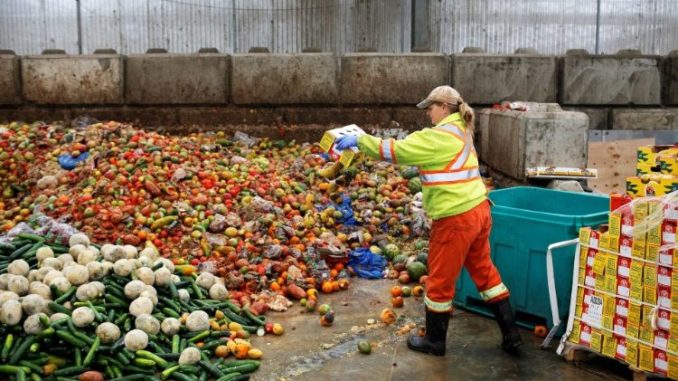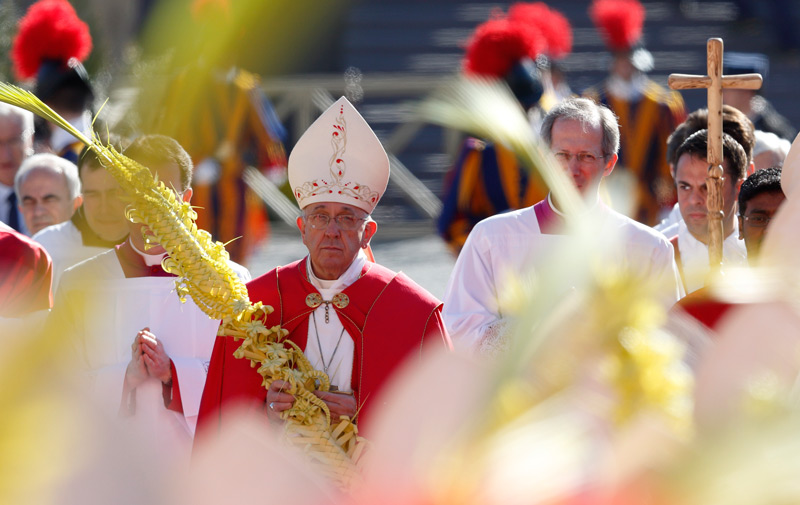
ROME—Pope Francis sent a message to the World Food Programme on Monday, Nov. 18, calling on all to support the UN agency’s global campaign to eliminate food waste through a change in lifestyle.
“If we wish to build a future where no one is left behind, we must create a present that radically rejects the squandering of food,” Pope Francis said during a rally to support a global campaign to avoid food waste. “Together, without losing time, by pooling resources and ideas, we can introduce a lifestyle that gives food the importance it deserves,” he said in a message to the World Food Programme (WFP).
The pope sent the message on the occasion of the opening of the WFP’s second regular session, which, he said, is seeking to formulate practical initiatives aimed at making more effective the fight against hunger in the world.
“Your many projects include promoting decisive measures to eliminate food waste,” which, he said, is “a phenomenon that increasingly weighs on our conscience”.
The Rome-based United Nations agency is the world’s largest humanitarian organization, addressing hunger and promoting food security in the world. It assists 86.7 million people in around 83 countries each year.
According to WFP, too many men and women across the globe struggle daily to feed their children a nutritious meal. In a world that produces enough food to feed everyone, it says, 821 million people, or one in nine, still go to bed on an empty stomach each night. Worse still, one in three suffers from some form of malnutrition.
Pope Francis noted that “in many places, our brothers and sisters do not have access to sufficient and healthy food, while in others, food is discarded and squandered.” Pope St. John Paull II called this the “paradox of abundance, which continues to be an obstacle to resolving the problem of feeding humanity.”
“This paradox,” the Argentine pope said, “involves mechanisms of superficiality, negligence and selfishness that underlie the culture of waste.” He warned that unless we seek to contain food waste, it will be difficult to honour the commitments of the Paris Agreement on climate change and realize the Sustainable Development Goals of the United Nations 2030 Agenda.
This objective, he pointed out, is the responsibility not only of international organizations and governments but of everyone. “Families, schools, and the communications media,” he said, “have an important task in educating and raising awareness in this regard.” No one can be considered exempt from the need to combat this culture that oppresses so many people, especially the poor and vulnerable in society.
With one-third of food produced for human consumption lost or wasted, and millions still going hungry, the WFP in October launched a global awareness-raising campaign, #StopTheWaste.
Pope Francis called for support for this drive, saying food waste damages the lives of many individuals and prevents the progress of peoples.
“If we wish to build a future where no one is left behind,” he said, “we must create a present that radically rejects the squandering of food.” The new lifestyle that gives food the importance it deserves, he explained, consists in properly valuing what mother Earth gives us, and will have an impact on humanity as a whole.
In this regard, the pope assured the Catholic Church’s commitment to foster solidarity among all people and to cooperate with the World Food Programme, stressing that “each human being has a right to healthy and sustainable nutrition.”
Whenever the human person is put at the centre of political and economic decisions, he said, “peace and stability are consolidated between nations” and “mutual understanding, the foundation of authentic human progress, everywhere increases.”
In conclusion, Pope Francis wished that WFP’s commitment awaken in all people of good will the desire to build a new and better world under the banner of fraternity, justice and peace.
By Robin Gomes/Vatican News


